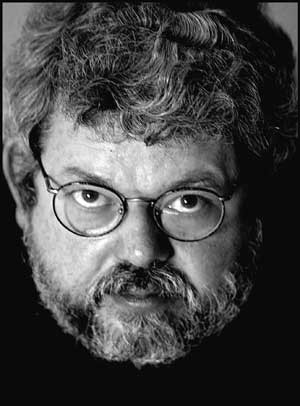Lula insiste en su esfuerzo diplomático
Rodríguez pasó por Brasilia sin hacer declaraciones a la prensa, pero según dijeron a Efe fuentes diplomáticas, uno de los asuntos tratados en el encuentro fueron las expectativas que ha despertado la cumbre, que la semana próxima reunirá en Trinidad y Tobago a todos los países latinoamericanos, menos Cuba, con Estados Unidos.
Será el primer encuentro entre los líderes de América Latina y el presidente estadounidense, Barack Obama, al que Lula ya le manifestó durante un encuentro en Washington, en marzo pasado, que Cuba es un ''caso sensible'' para la región.
Las fuentes diplomáticas consultadas por Efe dijeron que Lula conversó sobre el asunto con el canciller Bruno Rodríguez, a quien recibió junto a su ministro de Relaciones Exteriores, Celso Amorim.
Ninguno de los presentes en la reunión hizo declaraciones a los periodistas, pero fuentes oficiales explicaron que Lula reiteró su interés en que las relaciones entre Estados Unidos con Cuba y ''con otros países'', en alusión a Venezuela y Bolivia, sean discutidas en la cita de Trinidad y Tobago.
Lula ''no planteó el asunto con ánimo de ofrecerse como mediador entre Cuba y Estados Unidos, pero expresará (en Trinidad y Tobago) su opinión de que las relaciones entre los dos países tienen que normalizarse, bajo el respeto mutuo'', explicaron portavoces del gobierno brasileño.
Tras el encuentro con el canciller cubano, Lula recibió a un grupo de parlamentarios estadounidenses, integrado por miembros de los partidos Demócrata y Republicano.
''Los asuntos fueron básicamente los mismos'', dijeron portavoces de la presidencia brasileña, que añadieron que la única diferencia entre ambas reuniones estuvo en los asuntos bilaterales, que fueron también tratados en las dos entrevistas.
En el caso de Cuba, las relaciones están ahora potenciadas por el interés de Brasil en participar en la explotación de petróleo en aguas profundas cubanas.
Con Estados Unidos, ''la agenda bilateral es más amplia'', por su condición de principal socio comercial de Brasil, explicaron las fuentes, y afirmaron, además, que el hecho de que las reuniones con el canciller cubano y los parlamentarios estadounidenses hayan sido el mismo día fue ''una mera casualidad''.
La visita de Rodríguez a Brasilia ha supuesto su primer viaje oficial desde que asumió el Ministerio de Relaciones Exteriores en lugar de Felipe Pérez Roque, quién separado de su cargo en medio de la amplia reforma del gabinete realizada por el presidente cubano, Raúl Castro, en marzo pasado.
Esos cambios en el Gobierno cubano fueron interpretados en su momento, como un intento de Castro por dar a su gabinete un rostro más amigable a Estados Unidos, al separar a ''radicales'', como el propio Pérez Roque, y sustituirlos por políticos más moderados.
En ese mismo marco, algunos analistas brasileños han incluido el hecho de que la primera visita de Rodríguez como canciller haya sido a Brasil y no a Venezuela, cuyo presidente, Hugo Chávez, mantiene unas muy estrechas relaciones ideológicas y económicas con Cuba.
Pese a sus estrechos lazos con Chávez, Raúl Castro no estuvo presente en la última Cumbre de la Alternativa Bolivariana de las Américas (Alba), que patrocina Venezuela, y fuentes cubanas han dicho que tampoco tiene previsto asistir a la siguiente, convocada para el 16 de abril en Caracas, al igual que la primera.
Fotografía: el canciller de Brasil, Celso Amorim (d), habla con su homólogo de Cuba, Bruno Rodríguez (i), hoy, 8 de abril de 2009, tras una reunión con el presidente brasileño, Luiz Inácio Lula da Silva, en el Centro Cultural del Banco de Brasil en Braslia (Brasil), en la que se trataron asuntos bilaterales y la Cumbre de las Américas (Fernando Bizerra Jr./EFE).




0 Comments:
Publicar un comentario en la entrada
<< Home